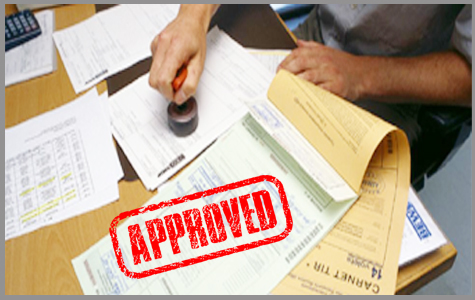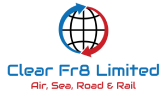Import Pet Food & Animal Feed into the UK
The pet food industry in the United Kingdom has undergone significant transformations in recent years, influenced by changing consumer preferences, advancements in animal nutrition, and evolving regulatory landscapes. Importing animal and pet food into the UK is a complex process, governed by stringent regulations that ensure the safety and well-being of pets.
The UK's exit from the European Union (Brexit) has further impacted these regulations, bringing about new challenges and opportunities for importers. This article aims to provide a comprehensive overview of the current state of importing animal and pet food into the UK, covering regulatory frameworks, health and safety standards, market dynamics, and the future outlook of this vital sector.
Navigating the 2024 BTOM Regulations for Importing Pet Food into the UK
The United Kingdom has always been stringent about maintaining biosecurity and public health standards. With the introduction and subsequent updates to the Biosecurity and Trade of Organisms and Materials (BTOM) regulations, the country continues to uphold these high standards, especially concerning the importation of pet food. The 2024 BTOM regulations aim to prevent the introduction and spread of infectious diseases through imported pet food, which could potentially affect not just domestic animals but also wildlife and human health. Here’s a deeper dive into what these regulations entail and how businesses can comply effectively.
Detailed Overview of BTOM Regulations
The BTOM regulations are designed to protect the UK’s biodiversity by preventing the introduction of non-native species and diseases. They cover a wide range of organisms and materials, including pet food, which can often be a vector for disease. These regulations are enforced by the Department for Environment, Food & Rural Affairs (DEFRA), in collaboration with the Animal and Plant Health Agency (APHA).
Comprehensive Guide to Import Requirements
-
Pre-Import Approval: The first step for any business looking to import pet food into the UK is to obtain pre-import approval from APHA. This involves a detailed submission of the product’s ingredients, source, and manufacturing processes, along with the existing safety standards followed in the country of origin.
-
Health and Safety Certificates: Health and safety certificates are mandatory and must be up-to-date. These certificates should provide proof that the pet food is manufactured in facilities that comply with international standards, and is free from harmful pathogens and toxins.
-
Detailed Labeling Requirements: Compliance with labeling standards is crucial. Labels must provide clear information on ingredients, nutritional content, storage instructions, and expiry dates. This is vital for consumer safety and for tracking products in case of a recall.
-
Inspections at Entry Points: Pet food imports are inspected rigorously at Border Control Posts. These inspections might involve physical examination of products, verification of documentation, and random sampling for laboratory tests.
-
Ongoing Compliance and Monitoring: Once approved for import, businesses must regularly monitor their products to ensure they continue to meet UK standards. This includes tracking batches, monitoring product stability during shelf life, and maintaining open communication lines with regulatory bodies for any necessary updates or recalls.
Implications for Various Types of Pet Food
The regulations differentiate slightly based on the type of pet food:
- Dry Pet Food: Generally considered lower risk but still requires thorough testing and documentation.
- Wet Pet Food: Higher risk due to higher moisture content, which can be a breeding ground for bacteria and pathogens.
- Raw Pet Food: Faces the strictest regulations due to the potential presence of pathogens that can affect both pets and humans.
Practical Tips for Compliance
- Stay Informed: Regulations can change; staying updated with any amendments in the BTOM regulations is crucial.
- Educate Your Team: Ensure that everyone involved in the import process understands the regulations and the importance of compliance.
- Invest in Quality Control: Establishing robust quality control processes both pre and post-import can safeguard against compliance issues.
The 2024 BTOM regulations for importing pet food into the UK are comprehensive and designed to ensure that only safe and high-quality products enter the market. While they present challenges, adherence to these regulations not only protects public and animal health but also enhances the credibility and trustworthiness of businesses within the industry. By understanding and implementing these regulations effectively, businesses can ensure smooth operations and contribute positively to the UK’s biosecurity framework.
When classifying imported pet food under the 2024 BTOM regulations, three risk categories—low, medium, and high—are considered, each defined by the potential for introducing pathogens into the UK.
Low-risk pet food typically includes commercially processed dry foods that undergo high-temperature cooking, effectively eliminating most pathogens. These products generally face fewer regulatory hurdles but still require compliance with basic safety standards.
Medium-risk pet foods often include semi-moist foods and those with additives that may support microbial growth if not properly handled. These require more stringent checks and more detailed documentation to ensure safety.
High-risk pet foods, such as raw or minimally processed items, pose the greatest danger of carrying harmful bacteria or diseases. These products are subjected to the most rigorous inspections and testing protocols, requiring comprehensive traceability systems to monitor their distribution within the UK. Each category demands adherence to specific handling, storage, and testing guidelines to mitigate risks associated with the import and sale of pet food.
DOCUMENT REQUIREMENTS
- Certificate of Origin
- Bill of Lading
- Packing List
- Commercial Invoice
- Customs Clearance

